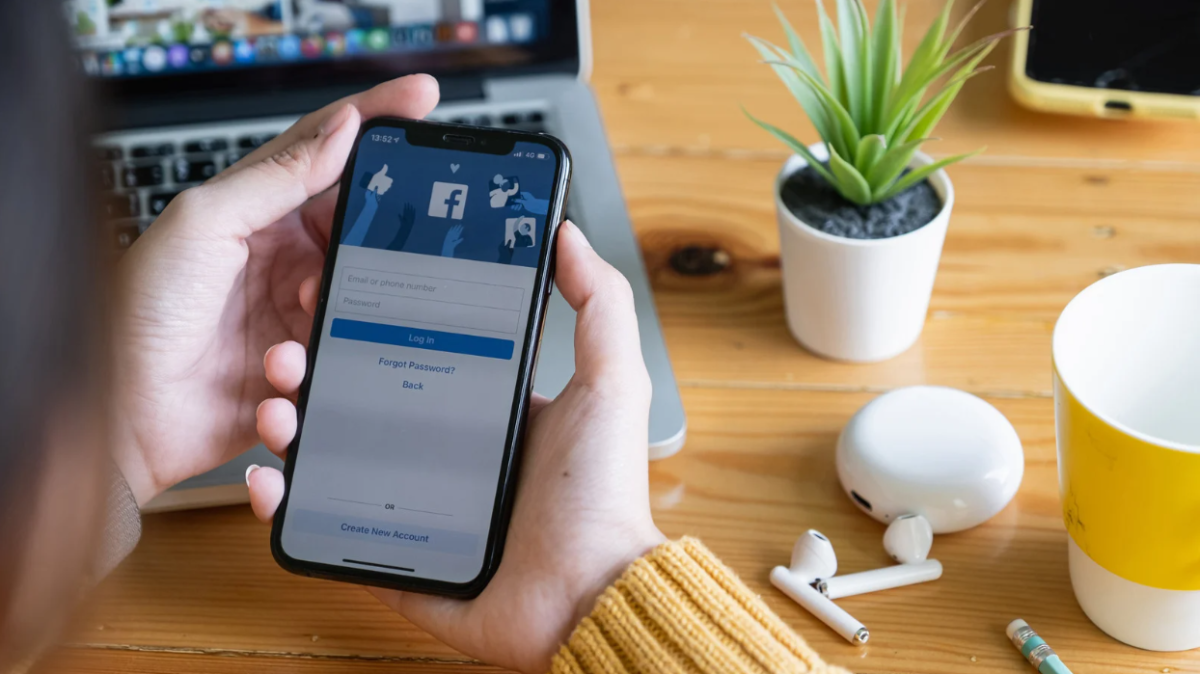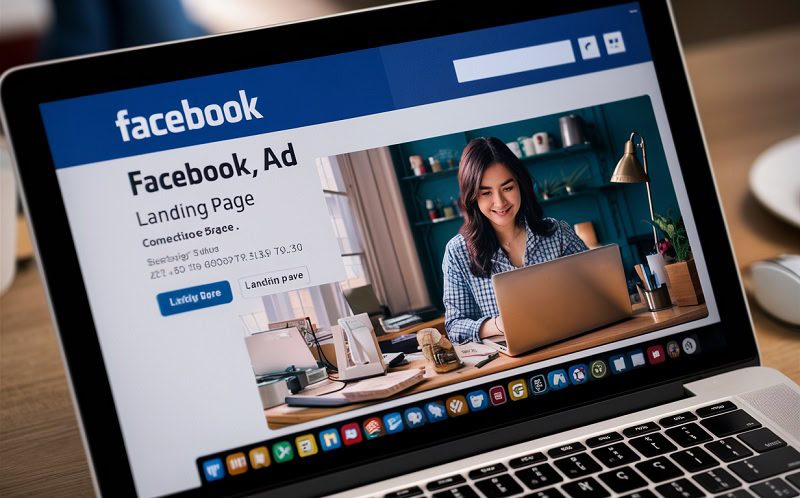Are you looking to leverage the power of Facebook ads for your business but unsure what a good cost-per-click (CPC) looks like? You’re not alone.
Many advertisers need help determining whether their Facebook ad campaigns deliver the best return on investment (ROI).
In this article, we’ll look into the factors influencing CPC and provide actionable tips to help you optimise your Facebook advertising strategy.

Photo by Timothy Hales Bennett on Unsplash

Boost E-Commerce ROI: Download Our Free CPA & ROAS Calculator
Understanding CPC in the Context of Facebook Ads
Before we explore what constitutes a good CPC, let’s clarify what this metric means.
CPC is the average amount you pay each time a user clicks on your Facebook ad. It’s calculated by dividing the total amount spent on an ad campaign by the number of clicks generated.
So, if you spent £25 to attract 100 ad clicks, your CPC is £25/100 clicks = £0.25 per click.
While CPC is an essential metric to monitor, it’s crucial to remember that it doesn’t tell the whole story. A low CPC doesn’t necessarily indicate a successful campaign if those clicks don’t lead to conversions or meaningful engagement with your brand.
Factors That Influence CPC on Facebook
Many factors can impact your Facebook ad CPC. The important ones include:
- Ad relevance: Facebook assigns a relevance score to each ad based on its perceived relevance to the target audience. Ads with higher relevance scores tend to have lower CPCs.
- Audience targeting: Targeting a highly specific, niche audience may lead to higher CPCs due to increased competition for those valuable clicks.
- Ad placement: The placement of your ads (e.g., Facebook News Feed, Instagram Stories) can affect CPC, as some placements are more competitive than others.
- Industry: The average CPC varies significantly across industries. For example, the finance and insurance sectors typically have higher CPCs than the retail industry.
What’s a Good CPC for Facebook Ads?
WordStream says the average CPC for Facebook ads across all industries is $1.68 (£1.35). However, this benchmark can be misleading, as CPC varies greatly depending on the abovementioned factors.

- Beauty & Fitness = $1.85 (£1.49)
- Business & Industrial = $2.48 (£1.99)
- Finance = $3.89 (£3.12)
- Food & Drink = $0.42 (£0.34)
- Hobbies & Leisure = $0.68 (£0.55)
- Home & Garden = $2.78 (£2.23)
- Internet & Telecom = $3.07 (£2.46)
- Jobs & Education = $2.11 (£1.69)
- News = $1.11 (£0.89)
- People & Society = $2.01 (£1.61)
- Pets & Animals = $0.61 (£0.49)
- Real Estate = $1.81 (£1.45)
- Science = $1.33 (£1.07)
Instead of fixating on a specific CPC value, focus on your campaign’s overall ROI. A “good” CPC allows you to achieve your desired business outcomes, whether that’s lead generation, sales, or increased brand awareness.
Tips for Optimising Your Facebook Ad CPC
1. Refine your audience targeting: Use Facebook’s detailed targeting options to reach the most relevant audience for your ads. Experiment with different targeting criteria to find the sweet spot between audience size and specificity.
2. Craft compelling ad copy and visuals: Ensure your ad creative is eye-catching, engaging, and aligned with your target audience’s preferences. Use strong calls-to-action (CTAs) to encourage clicks.
3. Test different ad placements: Experiment with various ad placements to identify which ones deliver the best CPC and overall performance for your campaigns.
4. Leverage retargeting: Retargeting ads to users who have previously engaged with your brand can lead to lower CPCs and higher conversion rates, as these individuals are already familiar with your offerings.
5. Monitor and adjust bids: Keep an eye on your CPC and adjust your bids accordingly. If your CPC needs to be lowered, consider lowering your bids or refining your targeting. Conversely, if your ads perform well, you should increase your bids to capture more clicks.
6. Utilise A/B testing: Continuously test different ad elements (e.g., images, headlines, CTAs) to identify which combinations drive the best CPC and overall performance.
The Impact of Ad Relevance on CPC
Ad relevance is one of the most significant factors influencing your Facebook ad CPC. Facebook’s ad auction system rewards advertisers who create highly relevant ads by lowering their CPC and increasing their ads’ visibility.
To improve your ad relevance, focus on:
- You are crafting ad content that resonates with your target audience’s interests and pain points.
- Use eye-catching visuals that accurately represent your brand and offerings.
- Ensuring your ad copy and visuals align with your landing page content to provide a seamless user experience.
You can significantly reduce your CPC and drive better overall campaign performance by prioritising ad relevance.
The Relationship Between CPC and Other Key Metrics
While CPC is an important metric to monitor, it’s essential to consider it in the context of other key performance indicators (KPIs). These include:
- Click-through rate (CTR): The percentage of people who click on your ad after seeing it. A high CTR can indicate strong ad relevance and audience targeting.
- Conversion rate: The percentage of ad clicks that lead to desired actions, such as purchases or sign-ups. A high conversion rate suggests that your ad targeting and landing page experience effectively drive results.
- Cost per acquisition (CPA): The average cost to acquire a new customer or lead through your Facebook ads. Monitoring CPA alongside CPC can help you gauge the overall profitability of your campaigns.
By analysing these metrics together, you can better understand your Facebook ad performance and make data-driven optimisations to improve your CPC and overall ROI.
Wrapping Up
Determining a good CPC for Facebook ads is less about hitting a specific benchmark and more about achieving your desired business outcomes while maintaining a positive ROI.
By focusing on ad relevance, refining your audience targeting, and continuously testing and optimising your campaigns, you can effectively lower your CPC and drive meaningful results for your business.
Remember, Facebook advertising is an ongoing process of learning and adaptation. Stay curious, experiment with different strategies, be bold, and adjust your approach based on performance data.
With persistence and a commitment to delivering value to your target audience, you can unlock Facebook ads’ full potential and achieve a CPC that works for your business.
Upbeat is a Facebook paid ads agency with expertise in creating and managing high-performing Facebook ad campaigns.
Our team of experienced digital marketers can help you optimise your CPC and achieve your business goals through data-driven strategies and creative ad solutions. Contact us today to learn how we can elevate your Facebook advertising efforts.
FAQs
1. How can I determine the right audience targeting for my Facebook ads to achieve a good CPC?
Use Facebook’s Audience Insights tool to gather data on your target audience based on demographics, interests, and behaviours. Experiment with different targeting options and continuously refine your targeting based on ad performance to improve your CPC.
2. What ad formats work best for achieving a low CPC on Facebook?
The effectiveness of ad formats varies depending on your industry, target audience, and campaign objectives. Test different formats like single image, video, carousel, and Instant Experience ads to determine which delivers the lowest CPC for your specific campaign goals.
3. How often should I adjust my Facebook ad bids to optimise my CPC?
Monitor your ad performance regularly and make bid adjustments based on your CPC trends and campaign objectives. The goal is to find the right bid amount that allows you to achieve your desired ad position and click volume while maintaining a profitable CPC.
4. How does ad relevance impact CPC, and how can I improve it?
Ads with higher relevance scores tend to have lower CPC because Facebook rewards relevant ads with better ad placement and lower costs. To improve ad relevance, create ad content that aligns with your target audience’s interests, use high-quality visuals, craft compelling ad copy, and ensure your ad content matches your landing page content.
5. What role does landing page optimisation play in achieving a good CPC on Facebook?
A well-optimised landing page can improve ad relevance, increase conversion rates, lower bounce rates, and enhance quality scores, all of which contribute to achieving a good CPC on Facebook. Focus on creating clean, mobile-responsive designs, compelling copy, and clear CTAs, and continuously A/B test different elements to identify the combinations that drive the best results.






